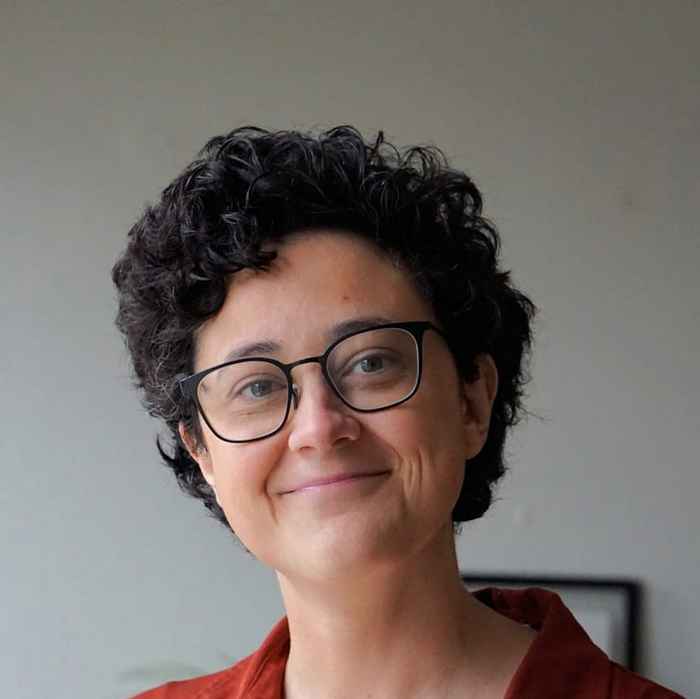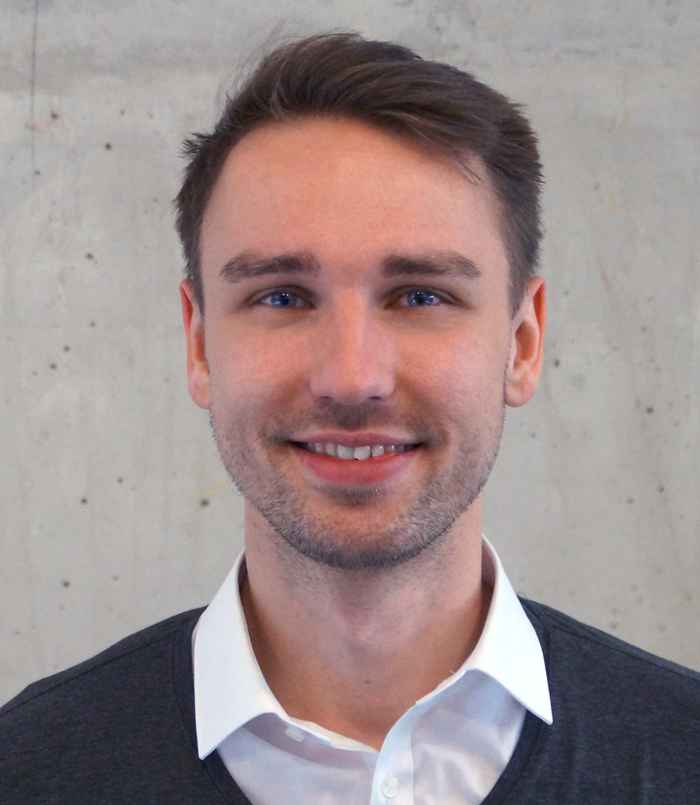Veni grants for Giulia Giubertoni and Fabian Eisenreich
16 December 2021
The Veni grants are part of the Talent Scheme of NWO and are aimed at excellent researchers who have recently obtained their doctorate. The grants of up to € 280,000 confirm the quality and innovative nature of their research and help to further establish themselves in their field.
Towards a molecular understanding of collagen failure

Dr Giulia Giubertoni will perform research into the molecular origin of the disrupted functionality of collagen that is associated with a particular bone disorder, osteogenesis imperfecta (OI) or brittle bone disease. OI is a life-changing, occasionally lethal, disease that affects 1:15000 newborns, compromising the quality of life because their fragile and deformed bones are frequently fractured. No effective cure is so far available for OI.
Although the genetic mutations causing OI are known, there is little understanding of the molecular aspects underlying the irreversible mechanical failure of bones. Giubertoni hopes to contribute to an understanding of the origins of OI by elucidating how mutations affect the hydration, molecular structure, and viscoelastic properties of collagen - the protein that allows bones to bear a load without breaking. With advanced spectroscopic techniques, nano-indentation and rheology experiments she will correlate the collagen structure with its mechanics on different length scales. She will also characterize the effect of mutations on the hydration and mechanical properties of collagen that is produced by healthy and diseased cells. She will conduct her research at the group of Prof. Sander Woutersen at the Van 't Hoff Institute of Molecular Sciences, in close cooperation with the Soft Matter group of Prof. Daniel Bonn at the UvA's Institute of Physics and collagen and OI researchers at Amsterdam UMC, TU Delft, Radboud Medical Center and Max Planck Institute for Polymer Research in Mainz.
Developing sustainable and environmentally benign chemistry

Chemical processes primarily rely on petroleum-derived solvents that can be toxic and often lead to organic waste that draws serious environmental and health concerns. For a future sustainable society and economy, more environmentally benign chemical technologies have to be developed - for instance using water as a solvent. Water is usually incompatible with the reaction conditions of traditional chemistry, but Eisenreich proposes to develop bio-inspired nanoreactors that allow chemical reactions to be carried out in pure water. To further enhance sustainability, he plans to use (sun)light to power the chemical processes.
Eisenreich sets out to develop a modular and recyclable platform based on the combination of water-soluble polymeric nanoparticles with recently developed state-of-the-art photoredox catalysts. The latter can unlock many challenging chemical transformations under mild conditions and have the prospect of employing sunlight as a free and sustainable energy source. The polymeric nanoparticles provide a hydrophobic interior to accommodate reactants and catalysts in high local concentrations, which considerably increases the conversion efficiency. In his Veni-research, Eisenreich aims to design and synthesize highly active nanoparticles and use them in demanding dechlorination and trifluoromethylation reactions, while harvesting low energy (sun)light for photocatalysis. He will perform his research in the Flow Chemistry research group of Prof. Timothy Noël at the Van 't Hoff Institute for Molecular Sciences.
See also
NWO news: 89 researchers awarded a NWO Veni grant worth 280,000 euros